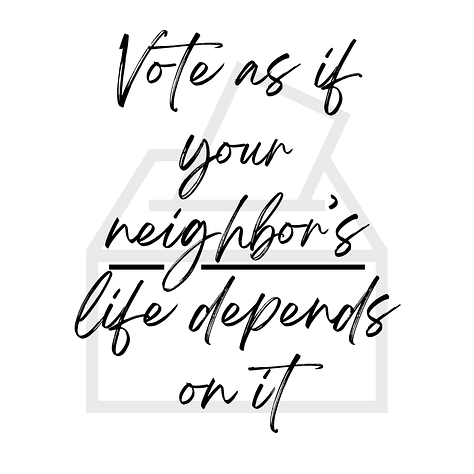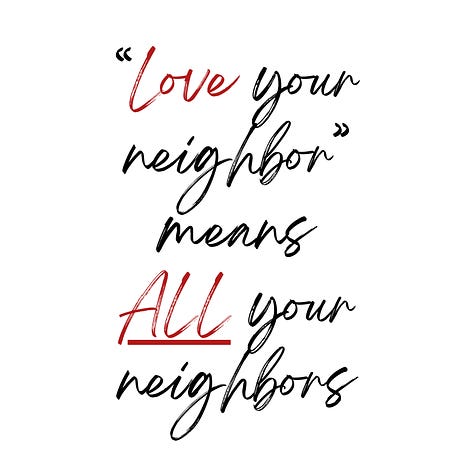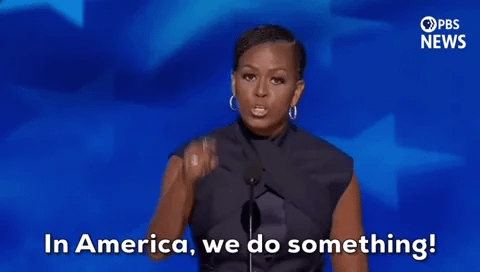Enough With Problem Proclamations
I want to hear ideas for solutions and change that will move us forward
A few years ago, I decided to change the way I approached research projects with my students. After my AP Composition class had spent a semester learning about rhetoric and the basics of writing arguments, I wanted them to take their arguments to the next level. I challenged them to work toward social change research. If they saw a problem, I wanted them to fix it. I wanted them to see that, even at their age, they had agency. And while they couldn’t vote, they would be able to vote soon enough. I wanted them to see the impact of local action and the importance of their vote in changing and improving their communities.
Last year, one student wrote about businesses installing solar panels. Another student dove into improving our election systems after writing her first semester paper on Ranked Choice Voting. She became so moved by her work, that she started bugging the student council advisers about implementing those voting systems for student council elections. A couple of students wrote about improving roads, including how to deal with the age-old Indianapolis problem of potholes. A few others tackled fast fashion and had to take a long hard look at their own purchasing habits. I left the topic options open, and they ran with it.
For some students over the years, it has been a tremendous challenge, not because they don’t know what to write about, but because they just want to dig in and write an argument about a pet project or belief. For many others, however, it has taught them the value of looking at many different angles to the problems that most concern them. It has taught them the value of bipartisanship and the importance of doing something. And it has taught them they are not without agency and that their voice matters now, not just after they officially become adults.
I am a realistic optimist who likes to fix things. When I’m teaching a unit for the first or second time, I’m constantly running through the list of things I wish I had done better and working to improve upon what I will do next time. I work myself into a tizzy doing what I can to stop my loved ones from hurting. When I see an event being poorly run, I mentally run through all of the ways I think it could be better. While I am admittedly terrible at follow through, I’m a dreamer constantly thinking about how things could improve.
And maybe that’s why I finally became disgusted with culture wars. It was never about solving the problems we were told were there. It was never about looking at complex causes and getting our hands dirty sifting through the nuances. It was never about seeing our society as a work-in-progress requiring effort. When we are driven by a culture wars mindset, the “solutions” are simple and don’t require anything but better moral choices, money, and a vote for the “right” people.
But that approach consistently ignores systemic issues caused by things like slavery, reservations, segregation, and the fight for women’s rights. It puts the blame for the issues plaguing most Americans at the feet of the very people who are suffering most. And when we can place the blame for problems on the people who are most impacted by those problems, it lets us off the hook. It takes away our responsibility because we’re not the ones stuck in the cycle. And when we do that, we ignore the interconnected nature of community: we are only as strong as our weakest link, regardless of the circumstances.
Here’s the rub: complaining about the things we don’t like is easy. Doing something about it takes a lot more work.
That’s not to say we always have the agency to make changes we want to see. I don’t have the power to reform the entire school system. I can’t convince my city to widen back roads and add bike lines so we can safely travel without our cars. I more often than not feel both voiceless and powerless to make changes in my church body, even though I’m not the only one struggling in the pew.
Even when we have agency, it is much easier said than done. I’m a hopeless people-pleaser. When I want to speak up, I struggle to do so because I don’t want to be labeled a troublemaker or make people mad. And our country has become so divided that we don’t trust each other to have our best interests at heart. We don’t trust our neighbors to pursue changes that will make our lives better. An environment of disinformation means we don’t even know if we are operating with the same facts as those who are geographically closest to us.
But we have big problems that need innovative solutions. We don’t have enough homes for our growing population. People can’t afford the basics in health care. Suburban sprawl encourages car dependency. Childcare costs leave many financially stuck. Our immigration system prevents us from growing our communities with individuals and families who want to fully participate in American democracy. Our education system doesn’t serve all of our students’ needs. Social media has created dangerous echo chambers and news organizations fail to hold people accountable to the truth. Climate change is here. War is breaking out in the Middle East. And the list goes on and on.
I’m tired of seeing keyboard warriors amplifying the problems while those with the solutions see their voices constantly muffled.
And why does that happen? Because proclaiming problems and complaining about them makes people more money. Solving the problems takes power away from those who amplify them and returns that power to the people who are making an actual difference.
So what do we do?
Outcomes require risk and reevaluation. It requires patience to give a potential solution time to work out the kinks. It requires that we accept we may not get it right the first time but that doesn’t mean we don’t keep trying something new. It requires putting people in charge who are serious, qualified, and want to do the hard work that change requires.
Brainstorming solutions requires more seats at the table, not fewer. Pursuing equitable solutions requires more diversity in the room, not less. And implementing solutions takes enough ego to believe it will work and humility to accept when it didn’t go perfectly.
In 2024 and moving forward, this means voting for individuals all the way down the ballot who are presenting real solutions to our problems instead of passing the blame onto others. It means voting for individuals who recognize the very real problems facing us and offering ideas and a willingness to grow and adapt.
It means making our own changes today. It can be as small as volunteering at a shelter or putting up a clothesline in your backyard to give your dryer (and electric bill) a break. It can be as big as installing solar panels (which we are desperately trying to investigate) or traveling to hurricane ravaged areas and volunteering your time and resources. Positive change begets positive change, and sometimes the best way to change someone’s mind about issues as important as the environment or immigration is to show people how the changes we’ve made are directly improving our lives and the lives of our neighbors.
In my own little corner of the universe, I will assign the social change paper once again next semester, and after reading my students notes for their rhetorical analysis papers, I’m excited to see what they will come up with. While making my own changes in my home, I will work to teach the next generation that they have more power and influence than they might believe right now.
And I believe that matters.
For those interested, you can find my social change project assignment here.
Support my writing
While most of my work here is free for all subscribers, it is still a labor of love that I fit into the few hours I have when I am not teaching or being an attentive wife and mom. If you want to support my writing but do not want to commit to being a paid subscriber, please consider a one-time donation.
You can also support me by ordering my book or books from my favorite book lists at my Bookshop.org affiliate page.
Check out my RedBubble store for related merchandise.



If you want to be a regular supporter, you can upgrade your subscription from free to paid and get occasional content only for paid subscribers.
And thank you for supporting my journey 💗








I laugh inwardly having taught for ten years, never having owned a tumble dryer, having seen someone I loved pass away due to lifestyle issues inherent in the financial services industry some of which are being addressed now by the new administration in the U.K. and often having been challenged online ‘What are you doing about it’?!